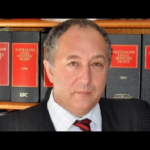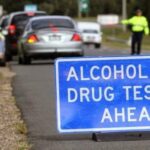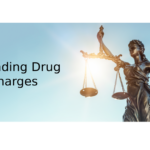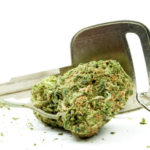Report Reveals that NSW Drink Driving Laws Work, Whilst Drug Driving Remains a Joke
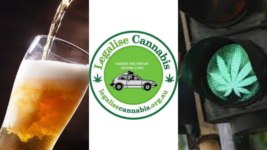
A just released report advises that reforms to New South Wales drink- and drug-driving laws, which have seen penalty notices, triggering licence suspensions and fines, issued to first-time low-level drink drivers and drivers with the presence of drugs in their system, has resulted in less court appearances.
Released on 24 January 2024, the Bureau of Crime Statistics and Research Use of Penalty Notices for First Time Drink- and Drug-Driving Offences report outlines that the reforms did see a significant drop in court attendance notices (CANs) issued for drink driving offences but not so much in regard to drug driving.
Part of the government’s Road Safety Plan 2021, the May 2019 first-time offender reforms replaced a system that saw drivers testing positive being arrested, issued with a CAN and in the interim before court licences were kept, whereas now a fine and immediate licence suspension apply.
This was done based on Australian Institute of Criminology data, which found that in these cases licence suspension is key to preventing reoffending. And whilst this system saw an 81 percent drop in drink driving offenders in court, the dip for drug drivers was only around 30 percent.
These findings again highlight that random breath testing (RBT) for alcohol, which measures intoxication levels, continues to be a highly successful road safety intervention, yet flawed roadside drug testing for the presence of drugs focuses on penalising illegal use, rather than improve driving.
Discrepancies in proceeding against
As then NSW roads minister Melinda Pavey noted in her August 2018 second reading speech on the amendment legislation, despite the introduction of licence suspension coupled with penalty notices, police retained “the discretion to issue a court attendance notice if circumstances require it”.
And according to BOCSAR, the smaller reduction in drug drivers receiving CANs, rather than penalty notices, is due to this discretion, as dissimilar to first-time drink drivers, drug drivers tend to be charged with further concurrent offences on testing and to have had more scraps with the law prior.
“We found that offenders with these characteristics, particularly those with concurrent offences and prior court appearances, are significantly less likely to be issued a penalty notice by police,” BOCSAR makes clear.
The report emphasises drug driving results differ across police regions and are likely driven by officer attitudes to illicit substances, and the inquiry found four possible reasons for these disparities, including the impact of COVID over the study period and the effect of the appeal process.
None of the reasons forwarded, however, were conclusive and nor did they consider that officers conducting positive roadside tests have, in the case of alcohol, detected levels of a legal substance, whereas one can reasonably expect drug drivers have broken the law in regard to drug possession.
A road safety gamechanger
In December 1980, the drink driving limit was dropped to 0.05 grams of alcohol in 210 litres of breath or 100 millilitres of blood, down from the 1968-set 0.08. And from December 1982, NSW police commenced random breath testing (RBT) trials, which became permanent in 1985.
RBT is based on blood alcohol concentration, which means police test for scientifically proven levels of alcohol in the blood of drivers that reveal whether they are impaired and, therefore, pose a danger to others on the road.
These limits are listed in section 108 of the Road Transport Act 2013 (NSW).
The 2019 penalty notice reforms applied to novice range drivers with a limit of over zero and under 0.02 grams, to special range drivers, with a breach involving more than 0.02 grams, as well as low range drink drivers, with a limit of between 0.05 and 0.08 grams.
The drug driving farce
Drug driving, however, was introduced in 2007, and unlike RBT, it tests for the mere presence of four select illicit substances in a driver’s system. This means that traces of a prescribed substance that may have been taken days prior could trigger a positive reading and result in licence suspension.
The Act stipulates that four prescribed drugs are tested, which include cannabis, MDMA, cocaine and amphetamines. This means there is no attempt to ascertain whether a driver has other drugs in their system, like heroin or prescribed benzodiazepines, with the latter present in many accidents.
Former Magistrate David Heilpern has been a key advocate for reforming drug driving laws, both on the bench and after he gave up the gavel. Indeed, he made a number of rulings that exposed drug driving flaws, including finding that a positive cannabis test can occur days after consumption.
A 2017 paper explains that while RBT has succeeded in transforming drink driving from “a common practice to a highly stigmatised criminal behaviour”, drug driving laws have been acting as a backdoor means of enforcing drug prohibition without addressing impairment or road safety.
The slow path to reform
The BOCSAR study outlined that over the first 10 months since the law change took effect in May 2019, 4,779 fewer individuals went before the court in relation to a first-time drink driving offence, whilst, in regard to drug driving, only 1,118 less alleged drug driving offenders appeared in court.
The report considers the reduction in drug driving CANs being issued is significant. However, the obvious distinction between the reform outcomes clearly shows that there is an issue with drug driving laws, which are illegitimately testing drivers for drug use under the guise of road safety.
Heilpern, NSW Greens MLC Cate Faehrmann and last year elected Legalise Cannabis NSW MLC Jeremey Buckingham are all campaigning for NSW drug driving laws to be reformed, and they especially want to see a defence passed that allows medicinal cannabis users to drive unaffected.
The campaign to see NSW drug driving laws reformed has steadily been growing since their inception. In fact, whilst the understanding that these laws are extralegal in their scope continues to increase, the one constant in the equation is Macquarie Street dinosaurs refusing to make changes.
Indeed, a recently submitted Legalise Cannabis NSW facilitated petition, calling on the Minns government to provide a defence for medicinal cannabis users who aren’t under the influence of their medication when driving, garnered close to 11,000 signatures.



